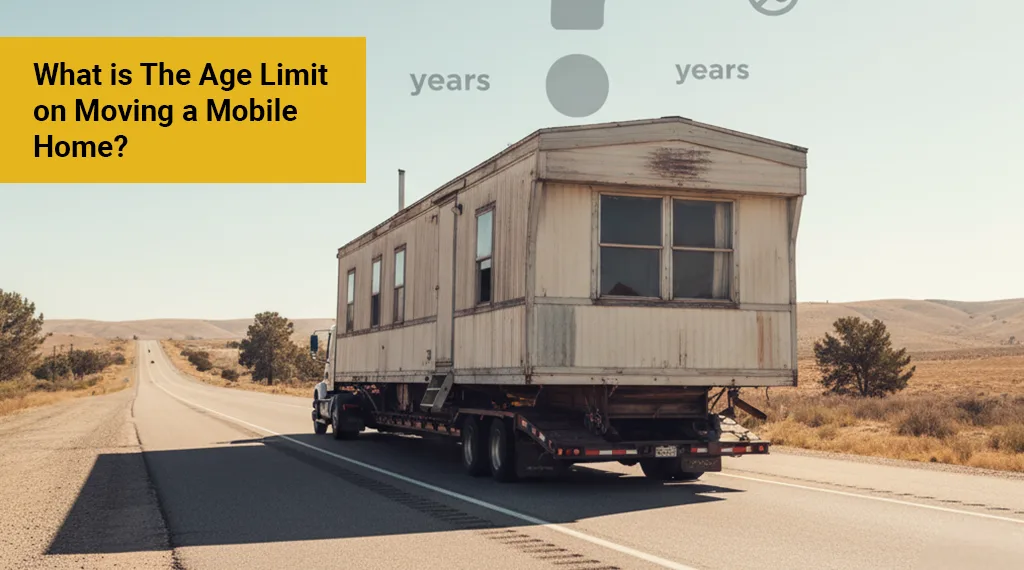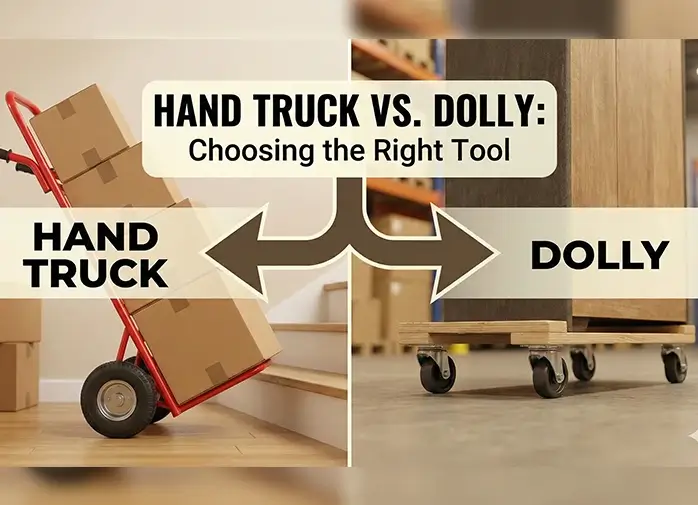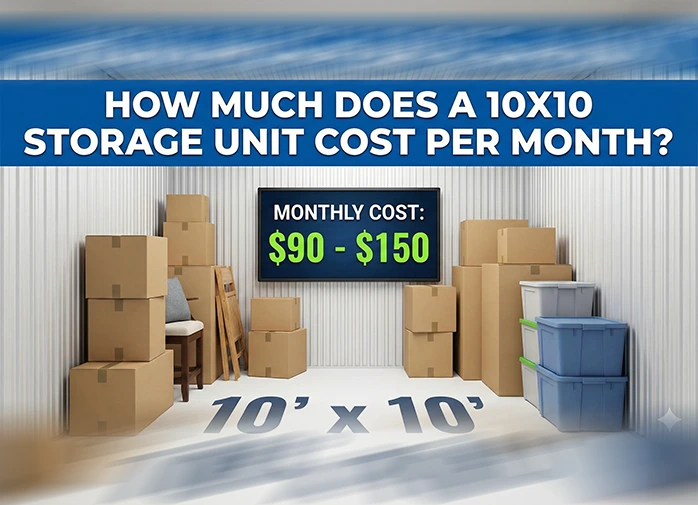What is The Age Limit on Moving a Mobile Home? – Rules & Requirements

Moving a mobile home can be more complicated than most people realize. Unlike a traditional house move, there are strict regulations in place that govern whether or not a manufactured home can legally be relocated. One of the biggest questions homeowners face is: What is the age limit on moving a mobile home?
The short answer is that many states restrict the relocation of mobile homes that are over 20 years old, while some require homes to meet HUD safety standards established in 1976. But the actual rules can vary significantly depending on where you live. Let’s break it down in detail.
Why Does Age Matter in Moving a Mobile Home?
The age of a mobile home is directly linked to its structural integrity and safety compliance. Older homes are more likely to have weak foundations, outdated wiring, and frames that can’t withstand relocation.
- Pre-1976 Homes: Mobile homes built before June 15, 1976, are generally considered unsafe for transport because they don’t meet HUD construction and safety codes.
- 20-Year Rule: In many states, once a mobile home reaches 20 years old, moving companies or county inspectors may refuse relocation approval.
Age limits are not about discrimination—they exist to protect both homeowners and communities from unsafe living conditions.
HUD Code & Federal Regulations
The U.S. Department of Housing and Urban Development (HUD) created the HUD Code for Manufactured Homes in 1976. This federal law sets standards for construction, energy efficiency, fire resistance, and structural safety.
- Pre-HUD Homes: Most states won’t allow these to be moved.
- Post-HUD Homes: Homes built after 1976 can generally be relocated, provided they are inspected and deemed safe.
👉 If your home is HUD-certified, it should have a HUD label (metal plate) attached near the electrical panel, bedroom closet, or kitchen cabinet.
State-Specific Age Restrictions
When it comes to moving a mobile home, there is no universal age rule that applies across the United States. Instead, regulations are determined at the state and county level, which means the requirements can vary dramatically depending on where you live. Below are some common examples of how different states approach mobile home age restrictions:
- Florida – Florida is one of the stricter states when it comes to mobile home relocations. In many counties, the 20-year rule applies, which means homes older than 20 years may not be eligible to move. Even if the home is structurally sound, it may be barred due to age alone. The rule exists to protect communities from receiving homes that may not meet modern safety standards.
- Texas – Texas does not always ban older homes outright, but mobile homes that are more than 10 years old may face stricter inspections before being approved for relocation. Inspectors check for roof integrity, sound flooring, HUD compliance, and safe wiring. This ensures older homes being transported are still livable and safe once they arrive at their new destination.
- North Carolina & Georgia – These states focus more on HUD standards than on the age of the home. If your mobile home was built after June 15, 1976 (when HUD codes took effect) and you can provide proof of the HUD certification label, your home may still qualify for relocation—even if it’s more than 20 or 30 years old. Without HUD certification, however, moving will likely be denied.
- Alabama & Mississippi – In some counties, rules are even tougher. Certain areas have enacted bans on moving homes older than 15–20 years, regardless of condition. These restrictions are designed to ensure that local housing remains up to modern safety and energy-efficiency standards.
Because these regulations differ so widely, it’s critical for homeowners to contact local zoning or building offices before making any moving plans. Even within the same state, different counties may have their own requirements. A professional moving company, like Van Lines Move, can also help you navigate these laws and make sure your home qualifies before you invest in permits and transport.
What If My Mobile Home Is Too Old to Move?
Discovering that your mobile home is “too old” to relocate can feel discouraging, but it doesn’t necessarily mean the end of the road. In fact, there are still several viable options if your home does not meet the age or HUD compliance requirements for moving:
- Sell the Home Locally – Many buyers are on the lookout for affordable housing, especially if the home does not need to be moved. You can sell the home in place, allowing someone else to take over the lot lease (if permitted by your park or landowner). This can be a practical way to recoup some value without having to go through the expensive moving process.
- Decommission the Home – If your mobile home is no longer livable or allowed to be moved, you may choose to decommission it. This process involves dismantling the structure and salvaging valuable parts like appliances, metal siding, or copper wiring, which can often be sold for scrap value. While not glamorous, this option ensures that some of the investment is recovered rather than lost.
- Donate the Home – Certain nonprofit organizations and charities accept mobile homes, even older ones, for reuse or for materials. Depending on your location, you might qualify for a tax deduction when donating a mobile home, which can offset some of the financial loss.
- On-Site Renovation – In some cases, the best option is not moving the home at all but instead improving it where it stands. Renovations such as upgrading plumbing, rewiring electrical systems, or adding insulation can extend the life of the mobile home and increase its livability. This approach is often far less expensive than moving and may help you comply with local housing standards.
In short, if your home is considered “too old to move,” you still have paths forward. Whether you choose to sell, salvage, donate, or renovate, there are ways to maximize value and continue making use of your home.
Costs & Risks of Moving an Older Mobile Home
Even if your home is technically moveable, older structures often come with higher risks and costs.
- Repairs Before Move: Old homes may require frame reinforcement, roof patching, or plumbing updates.
- Transportation Risks: Weak siding and old axles can break apart during relocation.
- Insurance Issues: Some insurers refuse to cover older homes during transport.
How Professional Movers Can Help?
This is where working with a licensed mobile home mover makes all the difference. Companies like VanLinesMove.com help homeowners:
- Check local regulations and age restrictions.
- Obtain moving permits and inspections.
- Secure professional transport with specialized equipment.
- Guide you on whether moving your home is financially and legally possible.
Final Thoughts
The age limit on moving a mobile home typically ranges between 15–20 years, depending on state and local laws. Homes built before 1976 HUD standards are usually ineligible for relocation.
Before making any decisions, consult your local county office, verify your HUD label, and contact professional movers who specialize in manufactured home relocation. If your mobile home is too old to move, consider selling, renovating, or decommissioning it instead.
Moving a mobile home is a big undertaking, but with the right planning and guidance, you’ll know whether relocation is the right choice for you.
FAQs: What is The Age Limit on Moving a Mobile Home?
1. Is there a federal age limit on moving a mobile home?
No, there isn’t a single federal age limit. However, federal HUD regulations require that any mobile home built before June 15, 1976 cannot be moved because it does not meet HUD safety standards. Beyond that, states and counties set their own age restrictions—typically ranging from 15–20 years.
2. Can you move a mobile home built before 1976?
In most cases, no. Homes built before 1976 do not meet HUD Code requirements for structural and fire safety. Some states will not allow these homes to be moved under any circumstance, while others may allow it only if extensive upgrades are made and the home passes inspection.
3. What is the 20-year rule for moving a mobile home?
Many states and counties enforce a 20-year rule, which means if your mobile home is older than 20 years, it may not be eligible for relocation. This rule exists to reduce risks of damage during transport and to ensure that homes being moved are safe, stable, and compliant with local housing standards.
4. Can I move a mobile home if it passes inspection but is older than 20 years?
In some areas, yes. Even if your home is over 20 years old, you may be able to move it if it passes a safety inspection and is HUD-compliant. You’ll need to check with your local county zoning or building office, as requirements vary widely from state to state.
5. What paperwork do I need to move a mobile home?
Generally, you’ll need:
- HUD Certification Label (proof your home was built after 1976).
- Title and ownership documents.
- Moving permits issued by your county or state.
- Inspection certificates (if required).
- Professional movers like Van Lines Move can guide you through the paperwork process.
6. What if my mobile home is too old to move?
If your mobile home does not meet age or safety requirements, you still have options:
- Sell it locally without moving.
- Renovate and keep it in place.
- Donate it to a nonprofit.
- Decommission it for parts or materials.
- Sometimes, staying put or upgrading is more cost-effective than moving.
7. How much does it cost to move an older mobile home?
Moving costs vary depending on age, size, and distance. On average:
- Single-wide: $5,000–$8,000.
- Double-wide: $10,000–$15,000+.
- Older homes often require additional repairs, reinforcements, or permits, which can significantly raise the price.
Categories
- Long Distance Moving154
- Local Moving120
- Commercial Moving40
- Residential Moving34
- Last – Minute Moving25
- Moving Tips & Lifestyle10
- Furniture Moving9
- Moving Tips & How-To Guides8
- Moving services7
- Moving Cost5
- Moving Cost Calculator5
- Moving Costs & Budgeting5
- moving tips4
- state to state movers4
- Piano Moving3
- Car Transportation3
- Truck Rental3
- Local Move3
- Moving companies3
- best moving rates3
- cheap moving companies3
- affordable moving companies3
- full-service movers3
- Moving3
- Moving Tips3
- Moving Cost Guides3
- Moving Tips & Planning3
- Junk Removal2
- Moving Container2
- Senior Moving2
- Senior Relocation Moving Companies2
- Moving Tools2
- Moving Estimates2
- interstate moving2
- College Moving2
- Dorm Moving2
- Tips for moving2
- cross-country move2
- International moving2
- Household moving2
- Relocation Guide2
- Moving Tips & State Guides2
- Heavy Equipment1
- Senior Moving Services1
- office moving1
- office relocation1
- employee relocation1
- Car Transport1
- Vehicle Shipping1
- Car Shipping Services1
- Artificial Intelligence1
- Office Moving Services1
- Commercial Moving Companies1
- Corporate Moving Services1
- Corporate Movers1
- full-service moving companies1
- sustainable moving companies1
- green movers1
- Moving in US1
- Best places to move in 20251
- 2025 moving1
- Full-Service Moving Companies1
- College moving services1
- Moving to College1
- Moving Season1
- Spring Moving1
- donate1
- sell1
- Movers in California1
- Movers in Studio City1
- Moving to California1
- Laws about Moving into California1
- Moving Laws1
- House moving1
- packing1
- cheap moving ways1
- Moving guide1
- moving across countries1
- international relocation program1
- move out cleaning1
- right packing supplies1
- pack while moving1
- Apartment moving1
- PODS1
- moving out1
- state to state move1
- California movers1
- Truck Rental1
- US Territory Relocation1
- International Moving1
- Long-Distance Moving1
- Shipping & Moving Tips1
- Moving Budget Guide1
- Relocation Guides & Incentives1
- Moving Tools & Equipment Guides1
- Moving Services & Options1
- Moving Tips & How-To Guides1
- Moving Day & Settling In1
- Mobile Home Moving1
- Moving Guide & Tips1
- Moving Tips & State Comparisons1
- Moving Tips & City Guides1
- Moving Tips & Cost Guides1
- Long-Distance Moving Tips1
- Moving Tips & Financial Planning1
- Moving Tips & Home Preparation1
- Vehicle Shipping & Auto Transport1
- Marketing & Lead Generation1
- International Moving Guides1
- Moving Costs1
- San Francisco Moving Guide1
- NYC Moving1
- Local Movers1
- Budget Moving1
- Student Moving1
- Affordable Moving1
- Specialty Moving Guides1
- Local & Long-Distance Moving1
- Boston Moving Guide1
- Europe Relocation Guide1
- Moving Costs & Specialty Moving1
- Cost of Living1
- Relocation1
- International Moving1
- Moving Guides1
- Lifestyle & Relocation1
- State Guides1
- Home Buying Guide1
- Moving Timeline1
- Real Estate Tips1
- Appliance Moving1
- Packing & Preparation1
- Interstate Relocation1
- City-to-City Moving Guide1
- Technology for Movers1
- Moving Costs & Storage1
- Moving Tips & Equipment Guides1
Archives
Recent posts
-

Hand Truck vs Dolly: Which One Is Better for Moving and Heavy Lifting?
January 2026 -

How Much Does a 10×10 Storage Unit Cost Per Month? (2026 Guide)
January 2026 -
.webp)
5 Best Apps That Help You Move | Moving Apps You Should Use
January 2026 -

Moving From San Francisco to New York: Complete Cross-Country Moving Guide
January 2026

 Local Movers
Local Movers Last-Minute Movers
Last-Minute Movers Junk Removal
Junk Removal Long Distance Movers
Long Distance Movers Piano Movers
Piano Movers Heavy Equipment
Heavy Equipment Commercial Movers
Commercial Movers Moving Container
Moving Container Car Transportation
Car Transportation Furniture Movers
Furniture Movers Truck Rental
Truck Rental Moving Cost Calculator
Moving Cost Calculator Moving Planner
Moving Planner Packing Calculator
Packing Calculator Moving Checklist
Moving Checklist Moving Insurance
Moving Insurance FAQ
FAQ Contact Us
Contact Us Moving Loan
Moving Loan About Us
About Us







